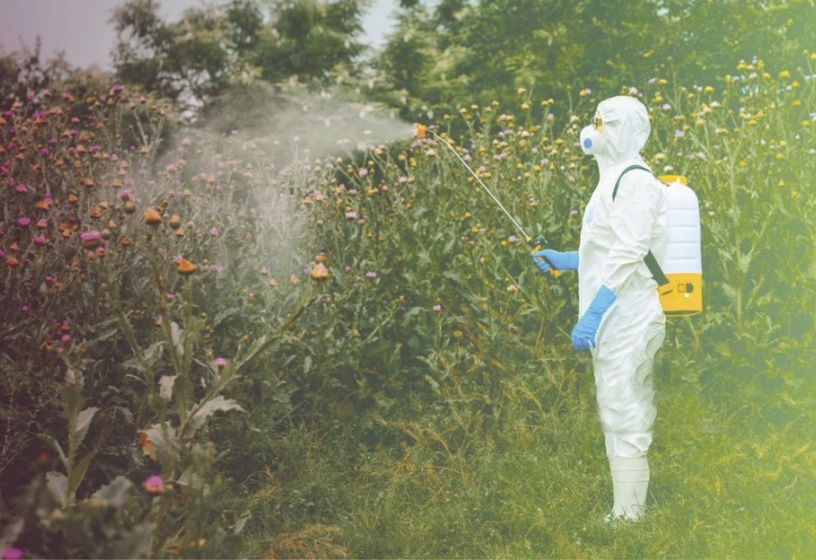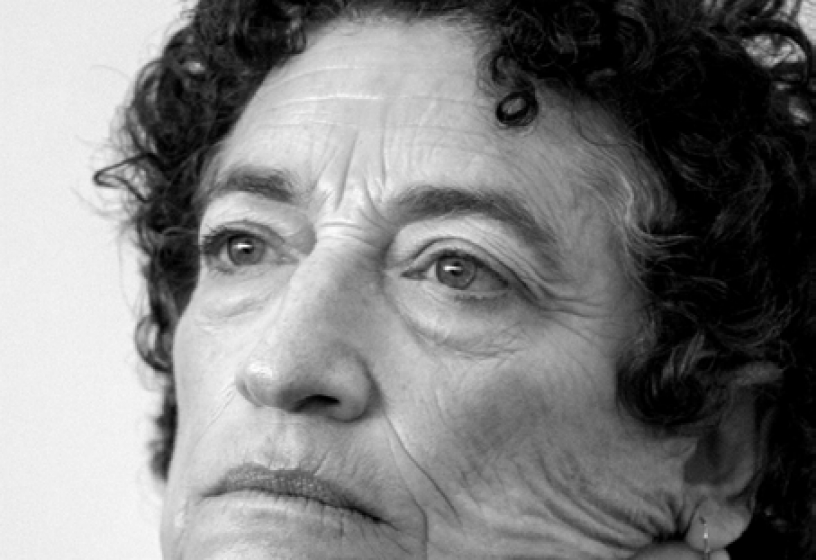Glyphosate: A brief history of a massive manipulation

Economic profit for some, ecological and human disaster for others, glyphosate illustrates the complex dynamics and power struggles that weigh on various decision-making bodies in our public life. Intense lobbying and the manipulation of science are at the heart of this saga, which was marked on 16 November 2023 with the European Commission's decision to extend the use of this controversial herbicide.
Launched in 1974 by Monsanto, through their product named "Roundup" (in the hands of Bayer now), glyphosate is the most used pesticide in the world nowadays, with approximately 825.000 tons sold every year. Present in more than 750 products, commercialised by hundreds of firms and distributed in more than 130 countries, it is cheap and easy to use. This comes at a price however, as glyphosate has a negative impact on our biodiversity and health. The pesticide has come under increasing attack ever since the release of Marie-Monique Robin's documentary film "Le Monde selon Monsanto" (The World according to Monsanto) in 2008, and is now being decried more and more by the scientific literature.
The true alarm bells rang in March 2015. The IARC (International Agency for Research on Cancer), an independent branch of the WHO (World Health Organisation), publishes its infamous "monography 112" and radically goes against of the opinion of regulatory agencies. Indeed, the EFSA (European Food Safety Agency) and the ECHA (European chemicals agency) have positioned themselves until then as in favor of glyphosate, not surprising given the fact that their evaluation is based on literature produced by the industries themselves. The monography 112, declares the genotoxicity of glyphosate (meaning it damages the DNA), carcinogenic for animals and probably carcinogenic for humans. Even though the IRCC has no regulatory powers, their scientific opinion is sufficiently recognised for it to immediately make a big splash in the news and start worrying Monsanto. Some users of glyphosate decided to sue the firm as responsible for their cancer (in particular those suffering from non- Hogkin's lymphoma). This led to the first American state (California) trial in 2016, between civil plaintiff, Dewayne Lee Jonhson, a gardener, and Monsanto, an event that brought the agrochemical giant's methods into the open.
The company's internal documents recovered by the plaintiff's lawyers, the famous Monsanto Papers, reveal a vast misinformation operation at various levels. To begin with, the multinational resorted to what is known as ghostwriting: it asked independent experts, not affiliated to the industries, to on their behalf sign articles favourable to glyphosate that had been written by an internal team of the manufacturer. Some of the articles in question were quoted hundreds of times, with the aim of sowing confusion and undermining the scientific consensus.
Another attempt to influence was through the public press. The Hill, a newspaper read by many Washington politicians, was found to be affiliated to Monsanto and published articles slandering the IARC’s scientific approach. It was also established that the company had tried to obtain information about the internal workings of the IARC by sending a fake journalist, Christopher Waltz, who signed his emails "@economist", suggesting that he was writing for the prestigious British newspaper The Economist. Collusion, conflict of interests, pressure, scientific fraud... the list goes on and on of the company's manoeuvres to ensure people believe their product to be harmless.
Dewayne Jonhnson eventually won the case in 2018. Lots of noise and awareness of the dangers inherent in glyphosate... However, when it comes to banning it, not much has happened. This is where the lobbying techniques are particularly well honed. The Member States have introduced various restrictions, and Luxembourg was even the first country to ban glyphosate completely in Europe in January 2021. But two years later, in April 2023, the Grand Duchy was forced to reauthorise the use of the herbicide, after being sued by the agrochemical giant. According to the latter, the ban was contrary to European law.
Initially, the EU scheduled a vote to decide whether or not to ban glyphosate by the end of 2022. But EFSA obtained a one-year extension on account of the assessment taking too long. Last November, Guilhem de Sèze, head of the EFSA’s risk assessment production department, appeared before the French National Assembly’s Committee of Inquiry into the impact of plant protection products on human and environmental health, where he openly acknowledged the weaknesses of the European assessment of pesticides. Among other things, he admitted that not enough account is taken of university studies and that the effects of glyphosate on biodiversity are only partially studied. However, these somewhat worrying admissions did not tip the balance one way or the other, as the European Commission’s vote on 16 November 2023 failed to produce a relative majority. Consequently, the initial opinion of EFSA and ECHA will prevail, in favour of the authorisation. As a result, the use of glyphosate in the EU has been renewed for the next ten years, albeit with some restrictions. The confusion sown by the Roundup manufacturer has therefore paid off.
But there is a glimmer of hope. It may not be long before things change. On 17 November, following the European Commission's announcement, the Secrets Toxiques coalition (a group of environmental associations) and a number of MEPs announced that they would be filing an action for annulment with the Court of Justice of the European Union (CJEU). Their main argument : only the toxicity of glyphosate has been studied, not that of the end product as a whole, to which co-formulants have been added. The battle of scientific studies goes on. To be continued...

